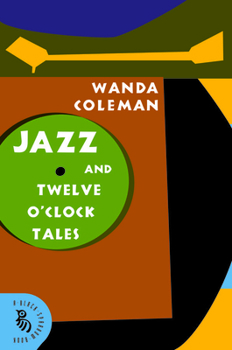Jazz and Twelve O'Clock Tales: New Stories
Wanda Coleman brings her enormous powers as a poet to her fiction, setting a scene with lightning-quick strokes, letting a closely observed detail speak for itself, or, alternatively, she will take an omniscient voice seeing beyond the impending and inevitable tragedy, but powerless to change either narrative or outcome. Powerless, that is, only within the bounds of the story, for Coleman is an author devoted to change, personal and political, writing to affect the balance of power in America. "Nothing will satisfy me," she has written, "short of an open society and social parity."
Jazz and Twelve O'Clock Tales owes its title to the lyrics of "Lush Life" by Billy Strayhorn. Like the heartbroken lover in Strayhorn's song, the characters in these stories lead lonely lives full of longing and potential stifled by racism, poverty, and absurd accidents of fate. And yet, even though they are trapped by the present moment, their inner lives are lush, a mirror of the city of angels in which they live, a metropolis, "always simmering," as Coleman writes in the final story, "ever waiting to be borne on that balmy promised crescendo."





